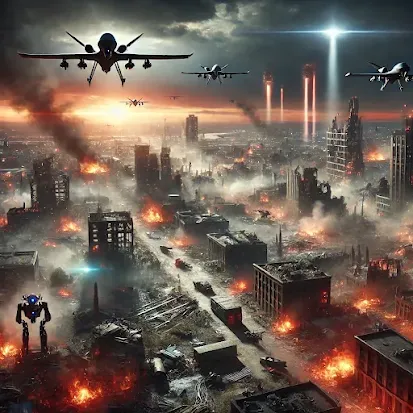World War 3: Possibilities, Causes, and Global Impact
Introduction
The concept of World War 3 has been a topic of speculation and concern for decades. With ongoing geopolitical tensions, military advancements, and nuclear proliferation, the question arises: Are we on the brink of a third world war? In this blog, we analyze the potential causes, possible scenarios, and the global impact of such an event.
Historical Context
World War 1 (1914-1918) and World War 2 (1939-1945) reshaped global politics, economies, and societies. The Cold War era (1947-1991) saw heightened fears of another global conflict, but deterrence strategies and diplomacy prevented a direct large-scale war. Today, new alliances, regional conflicts, and superpower rivalries fuel concerns about a possible World War 3.
Possible Causes of World War 3
Geopolitical Tensions – Rivalries between major powers such as the United States, China, and Russia have intensified, with flashpoints in Ukraine, Taiwan, and the South China Sea.
Economic Wars & Resource Struggles – Trade conflicts, competition for oil, water, and rare minerals, and economic sanctions can escalate tensions between nations.
Nuclear Proliferation – Countries like North Korea, Iran, and major nuclear powers could play a role in an escalating conflict.
Cyber Warfare & Artificial Intelligence – Modern conflicts may not start with bombs but with cyberattacks targeting national infrastructure, banks, and communication networks.
Terrorism & Proxy Wars – Non-state actors and proxy wars supported by global superpowers could trigger larger conflicts.
Potential Scenarios
US-China Conflict Over Taiwan – A military confrontation over Taiwan’s independence could involve Japan, NATO, and regional allies.
Russia-NATO Confrontation – Ongoing conflicts in Ukraine could escalate into a direct NATO-Russia war.
Middle East War – Tensions between Israel, Iran, and neighboring states could ignite a larger regional war.
AI & Space Warfare – Nations competing in AI-driven warfare and space militarization could push the world toward an unpredictable conflict.
Global Impact of World War 3
Economic Collapse – Stock markets would crash, trade would halt, and supply chains would break.
Massive Loss of Lives – A nuclear war could cause millions of casualties and long-term radiation effects.
Humanitarian Crisis – Refugee crises, food shortages, and infrastructure destruction would devastate entire populations.
New World Order – A post-war world could see the emergence of new superpowers and alliances, reshaping global governance.
Preventing World War 3
The best way to prevent World War 3 is through:
Diplomatic Negotiations – Strengthening international relations and peace treaties.
Disarmament & Non-Proliferation – Reducing nuclear arsenals and banning autonomous weapons.
Strengthening International Institutions – Empowering the United Nations, NATO, and other peacekeeping organizations.
Economic Cooperation – Focusing on mutual economic benefits rather than conflicts.
Conclusion
While the fear of World War 3 is real, it is not inevitable. Global diplomacy, economic stability, and technological cooperation can prevent a catastrophic conflict. Understanding the risks and working toward global peace is crucial to securing a stable and prosperous future.


